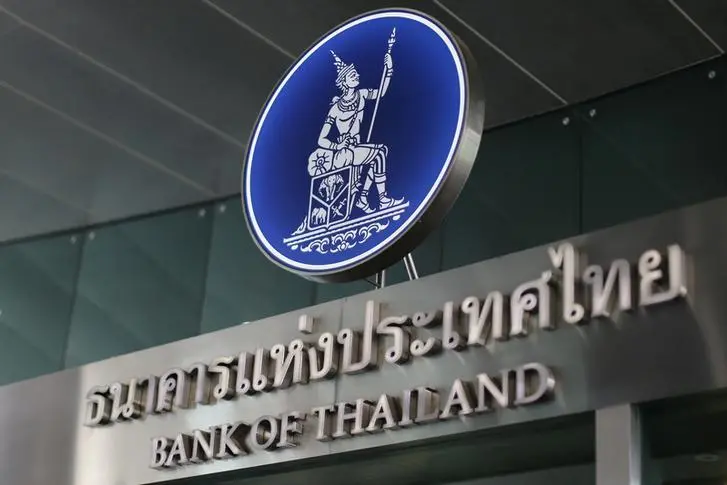PHOTO
Thailand's central bank unexpectedly raised its key interest rate for an eighth straight meeting on Wednesday, saying economic growth and inflationary pressures should pick up next year despite rising global uncertainties.
The central bank said the rate had now reached a 'neutral' level and was appropriate for supporting long-term sustainable growth in Southeast Asia's second-largest economy.
Economists expected Wednesday's move could mark the end of a year-long tightening cycle, which has seen the key rate raised by a total of 200 basis points (bps) since August 2022 to curb surging inflation.
The Bank of Thailand's (BOT) monetary policy committee voted unanimously to hike the one-day repurchase rate by 25 bps to 2.50%, the highest in a decade.
Only six of 27 economists polled by Reuters had predicted a quarter-point hike, while the remaining 21 had forecast no change.
"Monetary policy should aim to keep inflation sustainably within the target range, foster long-term macro-financial stability, and ensure sufficient policy space given uncertain outlook," the central bank said in a statement.
While cutting its 2023 economic growth forecast to 2.8% from 3.6% projected earlier, the central bank raised its 2024 growth outlook to 4.4% from 3.8%. Last year's growth was 2.6%.
Monetary policy will take into account the growth and inflation outlook, including upside risks from the government's economic policies, the BOT said in the statement.
"Growth should however pick up in 2024 from domestic demand, underpinned by a steady tourism recovery and a turnaround in merchandise exports, with additional support from government policies," it said.
OCBC said the BOT might be pre-empting the possible inflationary impact of the new government's stimulus plans.
Economists, however, expect no further hikes.
"With inflation below target and headwinds to the economic recovery mounting, we expect interest rates to remain on hold until well into next year," Capital Economics said in note.
The Thai baht pared losses after the rate decision, and was last down 0.5% at 36.53 per U.S. dollar. It has depreciated more than 5% so far this year.
The weakening baht was not a major factor in the rate hike, assistant central bank governor Piti Disyatat told reporters, adding that the currency was moving in line with regional peers, which are under strong pressure from the rising dollar.
"The current rate should be appropriate if they are no significant changes to the economy," Piti said.
The economy grew just 1.8% in the April-June quarter from a year earlier, much slower than the previous quarter, as exports slumped.
The BOT now expects foreign visitor arrivals at 28.5 million this year and 35 million next year, down slightly from previous forecasts. Pre-pandemic 2019 saw a record of nearly 40 million foreign tourists, whose spending accounted for more than 11% of GDP.
Headline inflation was seen at 1.6% this year, compared with 2.5% projected earlier, the BOT said, while raising its 2024 forecast to 2.6% from 2.4%, due partly to expected El Nino-related supply pressures. The BOT targets headline inflation in a range of 1% to 3%.
The BOT now expects exports, a key driver of Thailand's growth, will fall 1.7% this year amid faltering global demand, but will increase 4.2% next year, versus a previous projection of a 0.1% dip and a 3.6% rise, respectively. (Reporting by Orathai Sriring, Kitiphong Thaichareon, Satawasin Staporncharnchai and Chayut Setboonsarng; Editing by Martin Petty and Kim Coghill)





















